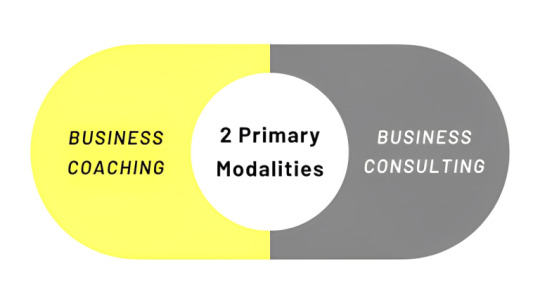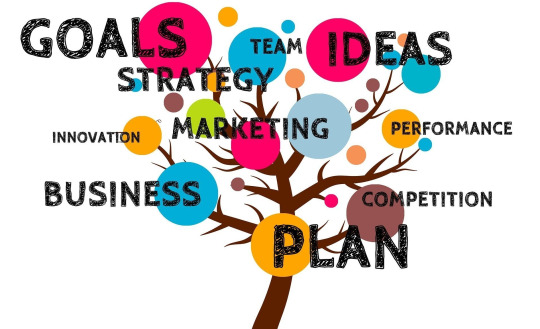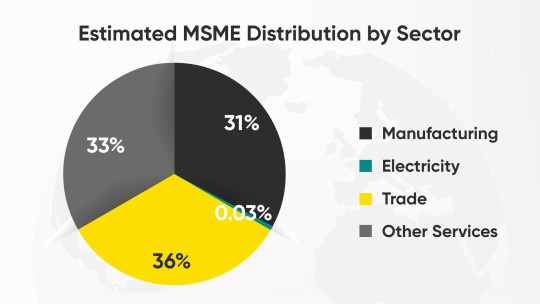Text
3+3 Inventory Management Strategies

There’s no arguing that inventory management is critical for any modern organization. Without proper inventory management, your firm risks upsetting its consumers, losing important sales, or investing in products that will not sell. As you can expect, any of these scenarios will be counterproductive to your growth and can be highly damaging to your bottom line.
Inventory management tactics are used by both large corporations and small enterprises to maintain their operations effective and profitable. In this blog post, we’ll discuss three key inventory management approaches, as well as how inventory management software can help you manage your inventory more effectively.
3 must-know inventory management strategies
The push technique, pull technique, and just-in-time approach are the three most common inventory management strategies. These methodologies provide firms with various options for addressing client demand.
Continue reading to find out more about these three inventory management strategies:
The Push Strategy for Inventory Management
The push strategy is a type of inventory control in which things are “pushed” down from the manufacturer to the store, warehouse, or business. A consumer or employee will then purchase or use the item from the inventory on hand.
In order to successfully use the push approach, a company must accurately estimate product demand. Understanding how much of a product is required and at what time of year is critical. Using inventory management software lets organizations evaluate how inventory has been used over time, providing crucial insights into how much inventory they may need to acquire during the calendar year.
For example, an electronic store may stock dozens and dozens of air conditioners and coolers in the spring and summer, but only a few in the winter. These retailers decide how many air conditioners and coolers to purchase based on how many they’ve sold previously and when. The push method is ideal for companies that can precisely estimate client demand.
Hint: Push Strategy works far better only and only if the prediction of requirement is better and more accurate based on previous data. This Inventory Management style helps organizations to fetch the best of the best rate.
The Pull Strategy for Inventory Management
The pull strategy is an inventory management system in which a store, warehouse, or corporation only “pulls” an item when a customer or employee orders it. Instead of moving down the supply chain, an item climbs up which can take a long time!
Many furniture-making shops, for example, are “pulled” only after consumers have handed over their payment cards. These people choose their furniture from a reference or a website, and the final furniture is either created or procured for them at the time of purchase. Customers are usually fine with it taking months because it is an industry standard.
However, the pull method is not for every firm, especially if clients can get identical goods from another source right away in a short time
Hint: The pull technique is typically used for specialty items, costly items, or items with little or unpredictable demand.
The Just-in-Time Strategy (JIT) for Inventory Management
The pull strategy is related to the just-in-time inventory strategy in that organization’s order inventory “just in time” to fulfil a customer’s order or a company necessity. Of course, adopting a just-in-time inventory management plan successfully necessitates dependable suppliers, vendors, and third-party logistics partners. Without them, a company may be unable to meet customer demand, which is almost always a prescription for disaster.
Just-in-time inventory saves firms money by reducing inventory carrying costs, reducing headstock, and improving cash flow. Companies that rely on JIT inventory, on the other hand, are not always able to satisfy demand and may have to overpay for a product to deliver it to their consumers promptly.
Apart from that, there are 3 More Inventory Management Techniques which are prevalent in the Market:
ABC Analysis:
This method works by identifying the most and least popular types of Inventory. This method of inventory is segregated based on Consumption and Investment and then given the classification of A, B, and C which will define the focus area on inventory which is highly consumed and has a high cost.
Batch Tracking:
Particularly, Pharma and FMCG manufacturers use this Inventory Management Technique where the focus is to build groups of similar items to track expiration dates and trace defective items.
Cross-Docking:
This technique focus on eliminating the warehouse by unloading the Inventory directly from a supplier truck to the delivery truck.
What Next?
No matter what method of inventory management your business practices, experts can help you practice better, faster, and less stressful inventory management and control. Stratefix consulting, a top-rated firm specializing in business growth consulting and strategy consulting firm can help you get organized fast, even if you’re in over your head.
#Business growth consulting#consulting firms in india#strategy consulting firm#management consulting surat
0 notes
Text
Business Coach Vs Business Consulting
When business gets confusing, don’t flip a coin – flip through the playbook of business coaches and Business growth consulting.
In the ever-evolving landscape of commerce, executives and business visionaries frequently enlist the aid of external specialists to propel their organization’s advancement and tackle intricate obstacles.
Such expertise is typically manifested in two primary modalities
Business coaching
Business consulting
Verifying the strategy can be executed by testing the assumptions and feasibility of the plan.
Setting clear expectations and milestones for those tasked with executing the strategy.
Assigning accountability and responsibility for key actions and deliverables.
Building buy-in and trust among those who will execute and benefit from the strategy.
Recalibrating and adjusting the execution plan in response to feedback and changes in the business context.
Coaching is dedicated to aiding individuals or teams in cultivating their competencies, conduct, and mental frameworks to realize precise objectives. Coaches engage intimately with their clients, delivering support and direction, and customizing their approach to suit the unique requirements of each individual.
Conversely, consulting adopts a strategic approach. Consultants collaborate with organizations to conduct in-depth evaluations and formulate recommendations tailored to specific business challenges or prospects. With specialized knowledge in fields like business strategy, marketing, or finance, consultants offer an external viewpoint that assists businesses in pinpointing areas for improvement and executing efficacious strategies.

Although both modalities are directed towards augmenting organizational efficacy, they diverge markedly in their methodologies and resultant impacts.
Comprehending these variances is imperative for firms to make informed decisions about which service most aptly corresponds with their strategic imperatives.
Essence of Professional Mentoring
Professional Mentoring or say Business coaching is dedicated to nurturing personal advancement and tapping into the untapped potential of organizational leaders and their teams. A business coach acts as a transformative agent, guiding clients to an intrinsic understanding of solutions and strategic pathways.
They address critical elements such as the enhancement of leadership competencies, the refinement of decision-making capabilities, and the promotion of individual development, all aimed at fostering a mind-set aligned with entrepreneurial victory.
This methodology encompasses the dissemination of hands-on knowledge across essential business domains such as Marketing, Sales, Management, and Operations, thus arming entrepreneurs with the necessary tools to expand their businesses.
Essence of Strategic Execution
In contrast, Business consulting or say Strategic Execution delivers specialized, expert advice along with on ground implementation to address and resolve distinct business challenges. Consultants have expertise in diversified industries who conduct thorough analyses of businesses, pinpointing issues and devising effective solutions. Their involvement is direct ad pragmatic, providing customized recommendations and concrete plans designed to enhance business operations, processes, and strategic initiatives.
This exemplifies the profound impact, specialized consulting firms in India can have on a business, offering clarity and direction that lead to measurable improvements and success.
However, delivering expert advice is not enough to ensure successful outcomes. Strategic advisors also need to have the skills and tools to execute their plans effectively and efficiently.
Some of the key factors for successful strategy execution are
By following these principles, strategic advisors can ensure that their advice is not only sound and relevant, but also actionable and impactful. They can also monitor and measure the progress and results of their execution and communicate them effectively to their clients and stakeholders. This way, they can demonstrate the value and return on investment of their consulting services.
Key Differences at Glance
Consultants
Coaches
Expertise VS Growth
Consultants are equipped with specialized acumen to tackle Organizational dilemmas.
Coaches champion the development of leaders on both a personal and professional front.
Solutions VS Possibilities
The realm of consulting is predicted on delivering resolutions to corporate boundaries.
Coaching is predicted on the exploration of potentialities and the encouragement of introspective Discovery.
Execution VS Empowerment
Consultant’s domain involves the implementation of stratagems and the provision of instrumentalities for pressing management requirements.
The Coach’s domain is to enable clients to conceive their own stratagems, ensuring organizational prosperity.
Partnering VS Mentoring
Consultants are strategic partners, who collaborate with organizations to optimize their operations, sales and human resources.
Coaches provides business expertise and advice based on proven strategies.
When should you consider Coaching and consulting, while frequently conflated, serve distinct purposes.
So, when should you opt for coaching vs consulting?
The answer lies in identifying the specific needs and desired outcomes of your organization.
Ultimately, the synergy between these two modalities boosts organizations to navigate uncertainties, surmount obstacles, and thrive in the ever-evolving business ecosystem.
0 notes
Text
Strategy and Business Consulting Firms Making Waves

Surat, the diamond capital of India, has long been renowned for its entrepreneurial spirit and thriving business ecosystem. In recent years, the city has witnessed a remarkable surge in the establishment of strategy and business consulting firms, reflecting the growing demand for expert guidance and strategic insights among local businesses.
Strategically positioned in the vibrant landscape of Gujarat, Surat has emerged as a hub for commerce, trade, and industry. Its robust infrastructure, favorable business policies, and dynamic workforce have attracted both domestic enterprises and multinational corporations seeking growth opportunities in diverse sectors. Amidst this backdrop, the role of consulting firms specializing in strategy and business advisory has become increasingly pivotal.
Strategy consulting firms in Surat offer a range of services tailored to address the unique challenges and objectives of businesses operating in the region. These firms leverage their expertise in market analysis, competitive intelligence, and strategic planning to help clients navigate complexities, identify growth opportunities, and optimize their operations. Whether it's devising market entry strategies, expanding into new geographies, or enhancing operational efficiency, these consulting firms provide valuable insights and actionable recommendations to drive sustainable growth.
Similarly, business consulting firms in Surat play a crucial role in supporting enterprises across various stages of their lifecycle. From startups and SMEs to established corporations, these firms offer a spectrum of services encompassing financial management, organizational development, marketing strategy, and more. By collaborating closely with clients, business consultants in Surat facilitate informed decision-making, foster innovation, and enable businesses to adapt to evolving market dynamics.
The proliferation of consulting firms in Surat underscores the city's evolution as a center for business excellence and innovation. These firms not only contribute to the success of individual enterprises but also catalyze economic development by fostering a culture of entrepreneurship and strategic thinking within the local business community.
One of the key advantages of engaging with strategy and business consulting firms in Surat is their deep understanding of the regional market dynamics and cultural nuances. By operating in close proximity to their clients, these firms are better positioned to grasp the intricacies of the local business landscape, anticipate emerging trends, and tailor their solutions accordingly. This localized approach enables them to deliver more relevant and impactful strategies that resonate with the specific needs and aspirations of Surat's business community.
Furthermore, consulting firms in Surat often collaborate with other stakeholders such as industry associations, academic institutions, and government bodies to create synergies and foster collective growth. Through knowledge sharing, capacity building initiatives, and advocacy efforts, these firms contribute to the overall competitiveness and resilience of Surat's business ecosystem.
As Surat continues to chart its course towards economic prosperity and global prominence, the role of strategy and business consulting firms remains integral to sustaining momentum and unlocking new avenues for growth. By harnessing their expertise, insights, and innovative approaches, these firms empower businesses to navigate challenges, capitalize on opportunities, and realize their full potential in the dynamic marketplace.
In conclusion,
The burgeoning presence of strategy and business consulting firms in Surat reflects the city's emergence as a vibrant hub of entrepreneurship and commerce. These firms play a pivotal role in driving strategic thinking, fostering innovation, and propelling business growth across diverse sectors. As Surat continues to thrive as a center of economic activity, the partnership between businesses and consulting firms will undoubtedly continue to flourish, paving the way for sustained success and prosperity in the years to come.
#Business growth consulting#consulting firms in india#Market research#business consulting firms#business consultant company#management consulting surat
0 notes
Text
The Synergy of Business Growth Consulting and Market Research

In the ever-evolving landscape of the business world, staying ahead of the competition requires a strategic approach that combines foresight, adaptability, and a deep understanding of market dynamics. Business growth consulting and market research emerge as powerful allies in this pursuit, offering invaluable insights and actionable strategies to propel companies to new heights.
Understanding Business Growth Consulting:
Business growth consulting is a specialized service that helps organizations identify and capitalize on opportunities for expansion. These consultants bring a wealth of experience and expertise to the table, working closely with businesses to formulate and implement growth strategies. Whether it's entering new markets, diversifying product offerings, or optimizing internal processes, business growth consultants provide tailored solutions to address specific challenges.
The Role of Market Research:
Market research is the cornerstone of informed decision-making. It involves gathering and analyzing data related to market trends, customer preferences, and competitive landscapes. By leveraging market research, businesses gain a comprehensive understanding of their industry, allowing them to make data-driven decisions that minimize risks and maximize opportunities.
The Synergy:
The synergy between business growth consulting and market research lies in their complementary nature. Market research provides the foundational data that informs growth strategies. Consultants use this information to identify areas of untapped potential, assess market demand, and develop strategies that align with the current market dynamics.
Identifying Opportunities: Market research helps pinpoint emerging trends, consumer behaviors, and unmet needs within the market. Business growth consultants leverage this information to identify growth opportunities that align with the company's strengths and objectives.
Risk Mitigation: In-depth market research allows businesses to anticipate potential challenges and risks associated with growth initiatives. Consultants use this data to develop risk mitigation strategies, ensuring that the business is well-prepared to navigate uncertainties in the market.
Optimizing Market Entry: For businesses eyeing new markets, market research is instrumental in understanding the local landscape. From cultural nuances to regulatory frameworks, consultants use market research insights to guide businesses through successful market entry strategies.
Customer-Centric Approach: Both business growth consulting and market research place a strong emphasis on understanding customer needs. Combining these approaches ensures that growth strategies are not only market-driven but also customer-centric, enhancing the likelihood of success.
Data-Driven Decision-Making: The integration of market research data into growth strategies promotes a culture of data-driven decision-making. This approach fosters agility and adaptability, allowing businesses to respond proactively to changes in the market environment.
Conclusion: In the pursuit of sustainable business growth, the collaboration between business growth consulting and market research is a formidable combination. By harnessing the power of data-driven insights, businesses can navigate the complexities of the market landscape with confidence. The synergy between these two disciplines provides a holistic approach to growth, ensuring that strategies are not only well-informed but also agile in the face of an ever-changing business environment. As businesses continue to evolve, the integration of business growth consulting and market research will be a key driver of success in the competitive global marketplace.
#Business growth consulting#consulting firms in india#it consulting companies in india#management consulting surat#Market research
0 notes
Text
The Rise of IT Consulting Companies in India and Business Consulting Firms

In the rapidly evolving landscape of global business, the demand for specialized expertise has never been more pronounced. As industries strive to stay ahead of technological advancements and market trends, the role of IT consulting companies in India and business consulting firms has become increasingly pivotal. This article explores the burgeoning significance of these consulting entities, shedding light on their contributions to organizational growth and resilience.
The Thriving IT Consulting Sector in India:
India has emerged as a global IT hub, fostering the growth of numerous IT consulting companies. These firms play a crucial role in helping businesses harness the power of technology to drive efficiency, innovation, and competitiveness. With a deep pool of skilled professionals and a cost-effective business environment, India has become a preferred destination for organizations seeking top-notch IT consulting services.
Expertise in Emerging Technologies: IT consulting companies in India are at the forefront of emerging technologies such as artificial intelligence, blockchain, and cloud computing. Their ability to provide strategic guidance on adopting and implementing these technologies empowers businesses to adapt to the digital era seamlessly.
Cost-Effective Solutions: The cost advantage offered by Indian IT consulting firms is a key factor attracting global businesses. These companies provide high-quality services at a fraction of the cost compared to their counterparts in Western countries, making them an attractive choice for businesses looking to optimize their IT investments.
Global Talent Pool: India's IT consulting sector benefits from a diverse and skilled talent pool. Consultants in India bring a global perspective, combining technical prowess with an understanding of international business practices, making them valuable partners for organizations with a global footprint. The Strategic Role of Business Consulting Firms: While IT consulting addresses technological challenges, business consulting firms focus on broader organizational aspects, including strategy, operations, and management. These firms offer holistic solutions to enhance overall business performance and foster sustainable growth.
Strategic Planning and Execution: Business consulting firms help organizations develop and implement effective business strategies. Through a comprehensive analysis of market trends, competitive landscapes, and internal capabilities, these consultants guide businesses in making informed decisions that align with their long-term objectives.
Operational Efficiency and Process Optimization: Improving operational efficiency is a common goal for businesses, and consulting firms specialize in identifying and addressing inefficiencies. By streamlining processes and workflows, these firms contribute to cost reduction and enhanced productivity.
Change Management and Adaptability: In a dynamic business environment, adaptability is crucial. Business consulting firms play a vital role in change management, helping organizations navigate transitions smoothly and ensuring that employees embrace new strategies and technologies effectively.Conclusion:As businesses strive to stay competitive and resilient in an ever-changing environment, the collaboration with IT consulting companies in India and business consulting firms has become a strategic imperative. The synergy between technological expertise and business acumen provided by these consulting entities empowers organizations to not only navigate challenges but also to thrive in the face of uncertainty. As the demand for specialized consulting services continues to rise, the role of these firms in shaping the future of businesses remains paramount.
#business consulting firms#it consulting companies in india#business consulting services#management consulting surat
0 notes
Text
360 degree impact on sales department productivity
“Business growth consulting" refers to a specialized form of advisory service provided by consulting firms to help businesses identify and implement strategies aimed at achieving sustainable and profitable growth. This field of consulting is particularly crucial for companies seeking to expand their market presence, increase revenues, and stay competitive in dynamic business environments.
Indeed, it is the role of Top Management to check the long-term impact of such ignorance and simultaneously, it should not be a hindrance in terms of Sales Achievement by the Sales Team.
The Sales Department is the connecting link between a company, its products, and potential customers.
One may say that the relevance and contribution of one department should be judged in comparison to other departments of the company.
HOW OTHER DEPARTMENTS IMPACT SALES DEPARTMENT?

“In a company, interdepartmental relations
And their co-ordination defines its growth and success.”
Impact of Accounts & Finance on Sales Department
Key Insights
Operational budgets prepared by Accounts & Finance are crucial for planning effective Sales Strategies.
Availability of funds is the prerogative of Accounts & Finance which will directly impact the functioning of Sales Department – whether to spend more or less.
At times, the objective of Profitability may lead to compromising the rest of the functions of the Company, including Sales.
“Sales Department’s prime focus is Expansion,
Whereas that of Accounts & Finance is Profitability.”
Impact of Production on Sales Department
Key Insights-
Sales Strategy largely depends on the production unit.
Production capacity, quality, and timing would boost the Sales Department tremendously.
Co-ordination between the two will lead to a greater quantity and better quality.
“Production & Sales are twin sisters.”
Impact of R&D on Sales Department
Key Insights
R&D Department will provide a logical base for production, marketing & sales.
The practical utility & financial viability of NPD will be determined based on the report of R & D, which will largely affect the Sales Strategy.
R & D Department will provide solid grounds for cross-cultural Sales Strategies & Practices.
“Co-operation between R & D and Sales has a significant,
Positive effect on New Product Development (NPD) Process.”
Impact of HR on Sales Department
Key Insights
Deploying the right people to do the right job with clearly defined job roles in Sales Department.
Hire the much-needed talent and manifest the Employee Value Proposition.
HR should focus on all the three types of performers in the Sales Department – Excellent, Good, Poor.
“A strong co-ordination between Sales & HR is
A key player in the success story.”
Impact of Customer Service on Sales Department
Key Insights
Upselling is a lot easier with existing loyal customers than new ones, especially when it comes to NPD.
Customers with Higher Lifetime Value provide greater stability to the Company. An increase in Sales is guaranteed.
Referrals provided by satisfied customers ultimately boost your sales. Customer Retention & Acquisition is greatly valued.
“Happy the Customers, better would be the future of the Company.”
Impact of Marketing on Sales Department
Key Insights
Leads provided by Marketing Department can lead to revenue-generation for the Sales Department.
Marketing strategies mentally prepare the potential customers/clients almost 60-70% and in some cases 100%, before he/she actually comes into contact with the Sales Team.
Professional Empathy between Marketing & Sales is very important. It is only after they understand each other’s challenges, they are in a position to come up with workable strategies.
“The thin line of difference between Marketing & Sales
In Digital Era is hard to define.”
Solution: Eventually, the cross-functional integration of all the departments as well as the professional insights gained from such collaboration, will determine the eventful history of the organization. Success, Profit, and Growth would then be the hallmarks.
In conclusion, growth strategy consulting serves as a catalyst for enhancing sales department productivity. By aligning sales efforts with a well-defined growth strategy, organizations can optimize their resources, improve customer relationships, and position themselves for sustained success in a competitive market.
#it consulting companies in india#Business growth consulting#consulting firms in india#business consulting firms#management consulting surat
0 notes
Text
Unlocking Business Potential: The Power of Business Growth Consulting and Growth Strategy Consulting

In today's fast-paced and dynamic business environment, achieving sustainable growth is a primary objective for companies of all sizes. As the competition intensifies and markets evolve, it becomes essential for businesses to continually adapt and expand. This is where the expertise of Business Growth Consulting and Growth Strategy Consulting comes into play. In this article, we will explore the significance of these services and how they can drive your business towards success.
The Role of Business Growth Consulting
Business Growth Consulting is a specialized service aimed at helping businesses achieve their growth potential. These consultants work closely with organizations to identify opportunities, develop strategies, and implement plans to drive expansion. Here are some key ways in which Business Growth Consulting can benefit your company:
Strategic Vision: Business Growth Consultants possess a deep understanding of market dynamics and industry trends. They can help you envision the bigger picture and set clear, achievable goals.
Market Analysis: These experts conduct thorough market research to identify growth opportunities, assess competition, and understand customer needs.
Business Expansion: Business Growth Consultants provide guidance on entering new markets, launching new products or services, and expanding your customer base.
Efficiency Improvement: They analyze your business processes to identify inefficiencies and recommend improvements that can reduce costs and enhance profitability.
Risk Mitigation: Consultants help in assessing and mitigating potential risks associated with growth strategies, ensuring that the business remains secure during the expansion.
The Value of Growth Strategy Consulting
While Business Growth Consulting focuses on the broader aspects of growth, Growth Strategy Consulting delves deeper into crafting strategies tailored to your business. Here's how it can add value to your organization:
Customized Strategies: Growth Strategy Consultants create growth plans that are unique to your business, considering its strengths, weaknesses, opportunities, and threats.
Innovation: They help you identify innovative ways to expand and stay ahead of the competition, whether it's through new products, services, or business models.
Resource Allocation: Growth Strategy Consultants assist in optimizing resource allocation, ensuring that your investments align with your growth goals.
Measurable Objectives: These experts set clear, measurable objectives and key performance indicators (KPIs) to track progress and ensure that your growth strategies are effective.
Adaptability: In a rapidly changing business environment, Growth Strategy Consulting helps you create flexible strategies that can adapt to evolving market conditions.
Bringing It Together
While Business Growth Consulting and Growth Strategy Consulting have distinct focuses, they are complementary services that can work together to supercharge your business's growth. Business Growth Consulting provides the overarching guidance, while Growth Strategy Consulting tailors specific plans and strategies to achieve those growth goals.
When seeking these consulting services, it is important to partner with experts who have a proven track record and a deep understanding of your industry. Their experience and insights will be invaluable in navigating the challenges and opportunities that come with business growth.
Conclusion
In an era where the business landscape is evolving rapidly, staying competitive and achieving sustainable growth is a constant challenge. Business Growth Consulting and Growth Strategy Consulting can be your guiding lights on this journey. They provide the expertise, vision, and strategic insights necessary to unlock your business's full potential and drive it towards a prosperous future. By harnessing these services, you can be better prepared to adapt, expand, and thrive in an ever-changing market.
#Business growth consulting#consulting firms in india#it consulting companies in india#business consulting firms#business consulting services
0 notes
Text
Thriving in the Indian Business Landscape Consulting Firms in India

India's dynamic and rapidly evolving business landscape presents both immense opportunities and complex challenges for companies operating within its borders. In such an environment, the role of consulting firms becomes pivotal. Business consulting firms in India have emerged as strategic partners, guiding organizations through the intricacies of the market, helping them optimize their operations, and driving growth. In this article, we will explore the significance of consulting firms in India and the valuable contributions they make to the country's business ecosystem.
The Evolution of Consulting Firms in India
Over the past few decades, India has experienced a profound transformation in its economic landscape. The country's transition from a primarily agrarian economy to a thriving hub of industry and technology has been nothing short of remarkable. This transformation has necessitated the growth of consulting firms to provide expert guidance to both domestic and international businesses.
Business consulting firms in India have evolved to meet the changing needs of the market. Initially focused on strategy and management consulting, they have diversified to offer services in areas such as technology, finance, human resources, and sustainability. This adaptability has allowed them to stay relevant in an ever-changing business environment.
Services Offered by Consulting Firms in India
Market Entry Strategy: One of the most critical services provided by consulting firms in India is helping foreign businesses navigate the complexities of entering the Indian market. They conduct market research, assess regulatory requirements, and develop strategies tailored to the unique needs of each client.
Operational Efficiency: Consulting firm’s help organizations streamline their operations and reduce inefficiencies. They optimize supply chains, improve manufacturing processes, and enhance customer service, ultimately leading to cost savings and increased profitability.
Digital Transformation: In a rapidly digitizing world, consulting firms in India assist businesses in embracing digital technologies. They help companies implement e-commerce solutions, adopt cloud computing, and harness data analytics to stay competitive in the digital age.
Human Resources and Talent Management: Finding and retaining the right talent is a challenge for many businesses in India. Consulting firms offer expertise in talent acquisition, workforce planning, and employee engagement to build high-performing teams.
Sustainability and CSR: As sustainability gains prominence globally, Indian consulting firms are helping businesses integrate environmental and social responsibility into their operations. They assist in developing sustainable business models and corporate social responsibility (CSR) initiatives.
Contributions to India's Business Ecosystem
Consulting firms in India play a vital role in shaping the nation's business ecosystem in several ways:
Job Creation: These firms provide employment opportunities for a diverse range of professionals, including management consultants, data analysts, and technology experts. By doing so, they contribute to India's economic growth and development.
Knowledge Transfer: Consulting firms bring global best practices and insights to the Indian business environment. This knowledge transfer enhances the competitiveness of local businesses and promotes innovation.
Foreign Investment: By assisting foreign companies in entering the Indian market, consulting firms facilitate foreign direct investment (FDI) inflows, which are essential for economic growth and infrastructure development.
Improving Governance: Many consulting firms collaborate with government agencies to improve public sector efficiency and service delivery. Their expertise helps in enhancing governance and promoting transparency.
Conclusion
In a rapidly changing business landscape, consulting firms in India have become indispensable partners for companies seeking to thrive in this diverse and complex market. Their ability to provide strategic guidance, optimize operations, and facilitate growth has a profound impact on India's business ecosystem. As the country continues to evolve, these firms will remain at the forefront, driving innovation and assisting businesses in navigating the challenges and opportunities that lie ahead.
#Business growth consulting#consulting firms in india#it consulting companies in india#business consulting firms#business consulting services
0 notes
Text
Effective Financial Management for MSMEs
Effective Financial Management for MSMEs

In India, the Micro, Small and Medium Enterprises (MSME) sector is second only to Agricultural. Though new on the economic radar, this sector promises a lot. Its current vibrancy and vivacity impacts the nation on various fronts like:
GDP
Economic output
Employment
Social development
Sustainable development
Innovation
Decentralization
These units that pump a humongous amount of value into the country’s economy need to be secured and backed-up with strong financial planning.
Though the relevance of managing finances is undisputed, while catering to other pressing aspects of business it is easy to lose track of the financial stand-point.
Financial planning is incomplete without budgeting and forecasting, together they complete the coin. If budgeting is the imprint on a coin that generates value, then forecasting is like the sheen adding glimmer.
This blog aims at discussing on how MSMEs can focus on financial budgeting, get the best advice and opinion from experts from one of the leading consulting firms in India.
Importance of Budgeting and Forecasting for MSMEs
In an MSME’s life-cycle finance is a vital ingredient at various stages like:
Start-up stage
Survival stage
Growth stage
Sustenance stage
Budgeting is like designing a goal-sheet for a company with specific agendas. And forecasting is like putting a date on those goals.
Budgeting and forecasting establish the company up on the path of progress a year at a time. It integrates contradictory traits like hope and dreaming big alongside of conservativeness and being-grounded.
Best Practices for Budgeting
Financial budget is a statement of expected revenue and expenses in a given financial tenure (usually a year). It’s an opportunity for the company’s leadership to set the pace for an up-coming year. They delve into the ground-reality and devise tactical action-plans to get there. Budgeting sets the pace for:
Staffing
Production
Inventory
Borrowing
Revenue management
Three major aspects of budgeting that suffice to identify the best budgets from the rest are: areas of budget allocation, possible methodologies and the strategies to get there.
Areas of budget allocation:
Financial
Production
Sales
Marketing
Capital
Cash management
Project based
Methods of budgeting:
Growth budgeting:
Growth is every company’s dream. With growth in income a brand experiences increment in expenses too. Ex: if the leadership is looking at a 9% income-growth during an upcoming tenure, they must allocate a 9% increased budget for the expenses too.
Value-based budgeting:
Across various aspects of each business, value generated from each one of them can differ. In this type of budgeting the leadership can identify the most value-generative aspect of their business and allot an increased budget for it. Ex: If some company finds value in R&D it should invest more into it.
Activity-based budgeting:
In this type, historical data and analysis plays a crucial role. Once the company can pin-point the activities like marketing, or feedback collection etc. that might have worked well for their growth in the past, then, can root-in on it again.
Make-over budgeting:
While wardrobe and styling makeovers are common, budgeting make-over is uncommon but ain’t unheard of. In this the leadership assumes new-eyes and views the brand / company in fresh light. This perspective is more helpful in curbing negative-budgeting outcomes of the past.
Strategies of budgeting:
Involving stakeholders: to increase the sense of belongingness.
Accessing historical data: to ensure company dodges the revival of old ghosts.
Analyzing the past performances: to enhance the further ones with well sketched out dos and don’ts.
Considering industry benchmarks: to identify where the glass ceiling is assumed to be.
Realistic and simplistic approach: to ensure the progress remains swift and constant.
Timely reviewing and revising: market dynamism prompts the inclusion of this aspect to meet the yearly goals.
Best Practices for Forecasting
Financial forecasting can safely be termed as a pre-requisite for budgeting. It helps draw a clear picture of many aspects expected to impact a business. Forecasting employs historical data and statistical analysis to attain its targets financial forecasting paves the way for an efficient budget allocation and devising a strategic roadmap for the company. Forecast works well for both short / long-term.
Effective financial forecasting materializes by engaging in three significant factors:
Quantitative factors:
Trust historic data
Identify and analyze key trends
Prepare multiple forecast version
Trust numbers, not assumptions
Qualitative factors:
Begin with the end in mind
Be conservative yet visionary
Reflect upon unforeseen scenarios handled in the past
A successful forecast would deviate within or around 4% only
Reflective factors:
Incorporate feedback from stakeholders
Regularly review and adjust the forecast
Dynamism along the journey will bag more fruits
Utilize top-down and bottom-up both the approaches for better outcomes
Tools and Technologies for Budgeting and forecasting as suggested by experts from India’s one of the leading business consultant company.
This task surely am not a cake-walk, instead it’s a roller-coaster ride. Various tools and techniques can be employed to ease the task. While record keeping is a common tool in every aspect, other aspects can be divided into two major categories like:
IT aspect:
Excel spreadsheet
It’s a handy and easy option when the needs are less than intense.
Advanced Software
Some examples of this are; Finley, Peak flow, Ana plan, Vena, Casual, Playful, Board, One stream etc.
Online services
Many software and application companies provide digital portals and all in one processing platforms too.
Apps
Some known apps that do this well are, Empower, YNAB, Mint, Pocket Guard, Good budget, Stash, Honeydew, Digit etc.
Human aspect:
Reliable vendors
Improved deadline commitments
Quality check
Regular learning & trainings
Like every coin, budgeting and forecasting also comes with its own drawbacks. Although these activities sound like a one-time task to be done every year; it is anything but that! Dynamism is an integral ingredient here. When a company / brand falls short on dynamism and improvisation it’s like as good as planned to fail.
The red flags of financial budgeting and forecasting can be:
Unrealistic targets
Micromanaging the finances
Overlooking of other business-aspects
Falling into the rigidity trap
Inviting internal conflict and blame-game
Risk of losing out on the long-term agendas.
Here the green flags are worth a look too:
Goal clarity
Measurable targets
Accurate revenue handling
Enhanced accountability
Promotes coordination
Improvised inter-department communication
High on confidence and motivation
Satisfaction of being in control
In spite of their contribution, MSMEs in India face several challenges like high cost of credit, rapidly changing technologies, competitive market etc. to name a few. In the wake of the insecurities, building finer practices around the financial fore-front remains vital.
Market uncertainty is a reality that cannot be escaped but can be survived. Appropriate financial forecasting and budgeting does exactly that.
When MSMEs embrace data and analytics in combination of right tools with proper budgeting and forecasting they leverage a strategic advantage of having prepared. Rewards of saving on crucial time, reducing errors, clarity, disciplined management etc. are ensured. More the accuracy they target, exponential are the benefits. To understand how Stratefix can empower your business in its journey of financial budgeting and forecasting
#business consulting firms#it consulting companies in india#consulting firms in india#Business growth consulting
1 note
·
View note